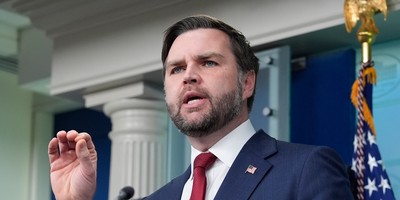As has been widely reported, senior Silicon Valley leaders—including Alphabet (Google’s parent company) CEO Larry Page and Executive Chairman Eric Schmidt—have been invited to New York for a meeting with President-Elect Donald Trump and his senior advisors. The context of this meeting couldn’t be more fascinating. Tech juggernauts that aggressively backed Clinton must now somehow gain access. Among others across the table from Trump will be Eric Schmidt, whose startup, The Groundwork, was the Clinton campaigns’ top tech vendor.
The fact that many in Big Tech bet big on Clinton is no secret and for good reason, as Google enjoyed an unprecedented level of access to the Obama Administration—access that resulted in favorable treatment from many executive branch agencies (see here, here, and here for just three examples). These companies were obviously keen to see that dynamic replicated in a Clinton White House.
In the wake of Trump’s victory, Silicon Valley’s lobbyists have gone into overdrive, issuing a steady stream of press releases, letters and position papers, presumably in an effort to transfer the policy achievements reliably delivered during Obama’s Administration onto Trump’s. These post-election entreaties stand in sharp contrast to a July 2016 open letter signed by 145 “technology sector leaders” stating “Trump would be a disaster for innovation.”
Perhaps Big Tech’s post-election calculus has led them to believe that they are at odds with Donald Trump, Jr. – who most certainly has the ear of the President-elect. Trump, Jr. has expressed support for important intellectual property rights and commonsense reforms of the patent system to protect innovators, whereas many tech firms stand to profit from the erosion of property rights and patent protections. Those firms are undoubtedly unfamiliar with President Abraham Lincoln’s strong support of intellectual property rights. A patent holder himself, Lincoln explained that “the patent system… added the fuel of interest to the fire of genius.”
Recommended
What’s more, a recent op-ed by Re/Code Executive Editor Kara Swisher makes plain Big Tech’s continuing contempt for the President-Elect. Swisher quotes one tech leader who blurted: “Trump is just awful, isn’t he? It makes me sick to my stomach … What are we going to do?” In response, Swisher attempts to put steel in their spines with a bellicose challenge:
Well, to start, realize again that you have the smarts and invention and the innovative spirit to do whatever you like. Realize you have untold money and power and influence and massive platforms to do what you think is right. Realize that you are inventing the frigging future.
The self-serving conceit embodied in Swisher’s call to arms is disappointing, but unsurprising: We’re smarter and richer than everyone else, and our control of internet platforms means we can do whatever we want—imposing our will on the world. Thus, Trump is to be thwarted, or “hacked.”
Swisher’s teeth-gnashing is sadly emblematic of everything that’s wrong with Silicon Valley. The internet has delivered significant benefits to society changing the way we communicate, conduct commerce, educate ourselves and more—but it has also generated a host of problems, making it easier for bullies, criminals, terrorists and even rogue states to harm consumers, citizens and our national interests. Big Tech is quick to take credit for innovations as they grow wealthy, but eschews any responsibility for concurrent problems. This is tellingly evident in the policy positions outlined by the Internet Association to the Trump transition which, as one commentator observed, “constitutes a policy framework dutifully constructed to enable its members to maintain the status quo.”
But the status quo is not the platform on which President-Elect Trump won the White House. “Make America Great Again” is not a slogan that resonated with tech oligarchs. However, it did resonate with everyday Americans, which was brilliantly captured on a Meet the Press segment featuring Mike Rowe, the host of “Dirty Jobs” on the Discovery Channel. Rowe and his fellow panelists discussed the nature of work, the important role worker dignity plays in a well-functioning democracy—and how Trump connected with people feeling vulnerable in today’s globalized, knowledge-based economy.
The Trump Administration has every reason to reject Silicon Valley’s agenda on political grounds, but a more compelling case can be made that their policy agenda is anathema to the principles on which he ran. I hope Trump and his team sees through the patina Big Tech spackles on their policy proposals and delivers policies that help us all.

























Join the conversation as a VIP Member